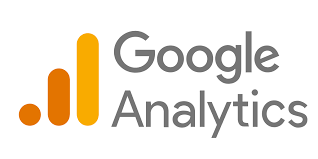Google Analytics
Google Analytics is a powerful web analytics service provided by Google that allows website owners to track and analyze various aspects of their website's performance and user interactions. It provides valuable insights into how users engage with the website, including information such as: Website traffic: Google Analytics tracks the number of visitors to a website, along with details such as their geographic location, language, and device used. User behavior: It provides information on how users navigate through the website, including which pages they visit, how long they stay on each page, and the actions they take (e.g., clicking on links, completing forms). Traffic sources: Google Analytics identifies the sources of traffic to the website, such as search engines, social media platforms, referral websites, and direct traffic. Conversion tracking: It allows website owners to track specific goals and conversions, such as purchases, sign-ups, downloads, or other desired actions taken by users on the website. Performance monitoring: Google Analytics provides data on website performance metrics such as page load times, bounce rates, and site speed, helping website owners identify areas for improvement
Overview
Google Analytics is a comprehensive web analytics platform offered by Google that provides website owners with valuable insights into the performance and usage of their websites. It offers a wide range of features and functionalities to track, measure, and analyze various aspects of website traffic and user behavior.
Here's a more detailed overview of Google Analytics and its key features:
- Tracking Website Traffic: Google Analytics tracks the number of visitors to a website, also known as website traffic. It provides detailed information about the volume of traffic over different time periods, such as daily, weekly, monthly, or custom date ranges. Website traffic data includes metrics such as total sessions, users, pageviews, and unique pageviews.
- User Behavior Analysis: Google Analytics helps website owners understand how users interact with their website. It provides insights into user behavior, including which pages users visit, how long they stay on each page, and the actions they take while browsing the website, such as clicking on links, filling out forms, or making purchases. This data helps website owners identify popular content, navigation patterns, and areas for improvement.
- Traffic Sources Identification: Google Analytics categorizes website traffic into different sources based on where users come from. These traffic sources include organic search (from search engines), direct traffic (from typing the website URL directly into the browser), referral traffic (from other websites), social media traffic (from social media platforms), and paid search traffic (from online advertising campaigns). Understanding the sources of website traffic helps website owners evaluate the effectiveness of their marketing efforts and optimize their online presence.
- Conversion Tracking: Conversion tracking is a key feature of Google Analytics that allows website owners to measure and track specific goals and actions taken by users on their website. Conversions can include various user activities, such as making a purchase, signing up for a newsletter, downloading a file, or completing a contact form. By setting up conversion tracking, website owners can measure the effectiveness of their marketing campaigns, identify high-performing pages or campaigns, and optimize their website for better conversion rates.
- E-commerce Tracking: For e-commerce websites, Google Analytics provides advanced e-commerce tracking capabilities to monitor and analyze online sales and transactions. E-commerce tracking allows website owners to track key metrics such as total revenue, average order value, conversion rate, and product performance. It also provides insights into customer behavior throughout the purchase process, from product browsing to checkout, helping e-commerce businesses optimize their sales funnel and improve their online store's performance.
- Customization and Reporting: Google Analytics offers a wide range of customization options and reporting features to tailor analytics insights to specific business needs. Users can create custom reports, dashboards, and segments to analyze data according to their requirements. Google Analytics also provides advanced features such as event tracking, custom dimensions, and advanced filtering to capture and analyze more granular data about user interactions and website performance.
- No. Exam
- Course Length
- Locations
- Locations
- Locations
- Locations

